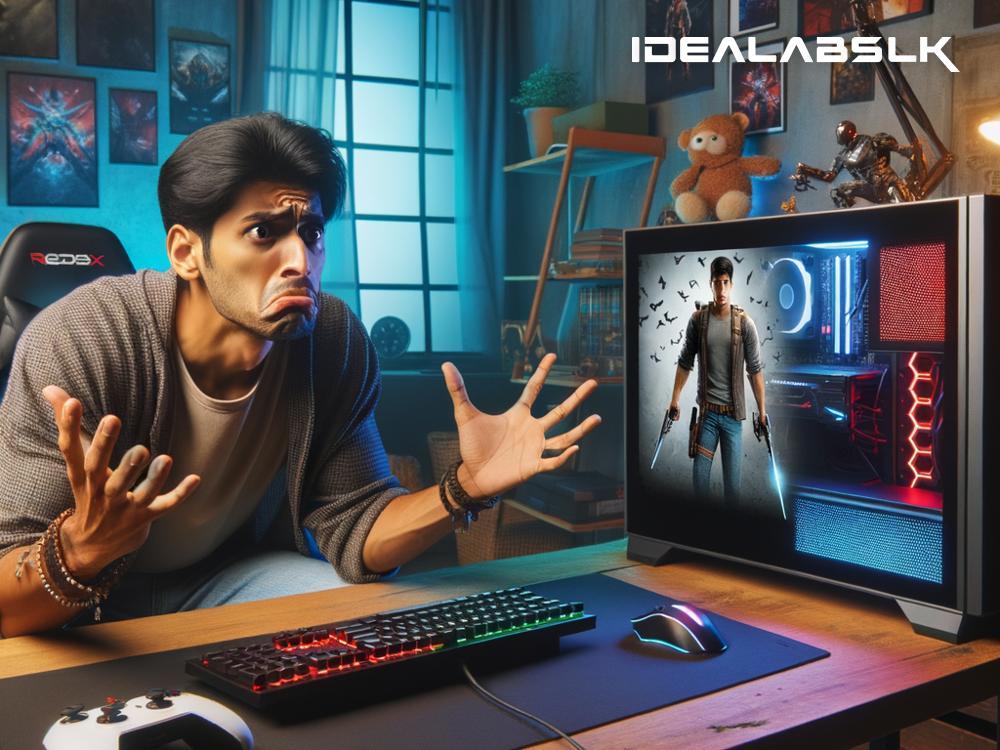How to Solve 'PC Freezes During Gaming': A Simple Guide
If you're a gamer, you know there's nothing more frustrating than being in the middle of an intense gaming session and suddenly, your PC decides to freeze. This not only ruins your gaming experience but can also lead to loss of progress in your game. But don't worry, this problem is solvable. Let's go through some simple steps you can take to prevent your PC from freezing during gaming.
1. Check Your Hardware
The first thing you should do is to check if your PC's hardware meets the minimum requirements of the game you're playing. Running a game that demands more than what your system can provide is a common cause of freezes. Make sure your CPU, GPU, RAM, and storage have what it takes to run the game smoothly. Also, check if your PC is overheating, as excessive heat can cause it to freeze. Cleaning the fans and ensuring proper ventilation can sometimes solve the issue.
2. Update Your Drivers
Outdated drivers, especially your graphics card drivers, can lead to performance issues like freezing. Make sure you have the latest drivers installed for your hardware. You can usually find these on the manufacturer's website. Updating your drivers not only improves stability but can also enhance game performance.
3. Lower Your Game Settings
If your PC is on the edge of the game’s requirements, consider lowering the game settings. High graphics settings can put a significant strain on your CPU and GPU, leading to freezes. Lowering the resolution, texture details, and shadows can significantly improve your gaming experience without the freezing.
4. Monitor Background Applications
Another reason for PC freezes during gaming could be the heavy load on your system's resources by background applications. Programs like antivirus software, web browsers with multiple tabs open, or any download managers can consume a significant chunk of your RAM and CPU power. Before launching your game, close unnecessary applications to free up resources.
5. Check for Malware
Malware can also be a culprit behind PC freezes. These malicious programs can interfere with your games and other software, causing your system to hang up. Run a thorough scan using a reputable antivirus program to make sure your PC is clean. Regularly scanning for malware can prevent many performance issues, not just during gaming.
6. Adjust Power Settings
Windows offers different power plans that can affect your PC's performance. For gaming, make sure your power plan is set to "High performance". This ensures your PC utilizes its resources fully for the best gaming experience. To change your power plan, go to Control Panel > Hardware and Sound > Power Options and select "High performance".
7. Manage Your Storage
A nearly full or fragmented hard drive can markedly slow down your PC, leading to freezes. Make sure you have enough free space on your drive for games to run smoothly. For traditional hard disk drives (HDD), defragmentation can help improve performance. If you're using a solid-state drive (SSD), make sure it has TRIM enabled for optimal operation.
8. Update Your Game
Sometimes the game itself could be causing freezes due to bugs or compatibility issues. Game developers regularly release patches and updates to fix such problems. Ensure your game is up-to-date. You can generally check for updates through the game's launcher or the platform you purchased it from (such as Steam or Origin).
9. Reinstall the Game
If all else fails and your game continues to freeze, consider reinstalling it. There could be corrupted files causing the issue, and a fresh install might fix this. Remember to back up your game saves before uninstalling.
10. Check for Hardware Issues
If you've tried everything and the problem persists, it might be a hardware issue. Faulty RAM, an overworked power supply, or a dying graphics card can cause freezes. Running hardware diagnostic tools can help pinpoint the problem. If you're not comfortable doing this yourself, consider taking your PC to a professional for a check-up.
In conclusion, PC freezes during gaming can stem from a variety of issues, from hardware inadequacies to software conflicts. By systematically going through the potential causes listed above, you can identify and solve the problem, ensuring a smooth and enjoyable gaming experience. Remember, keeping your PC clean, updated, and well-maintained is key to preventing many common issues.

